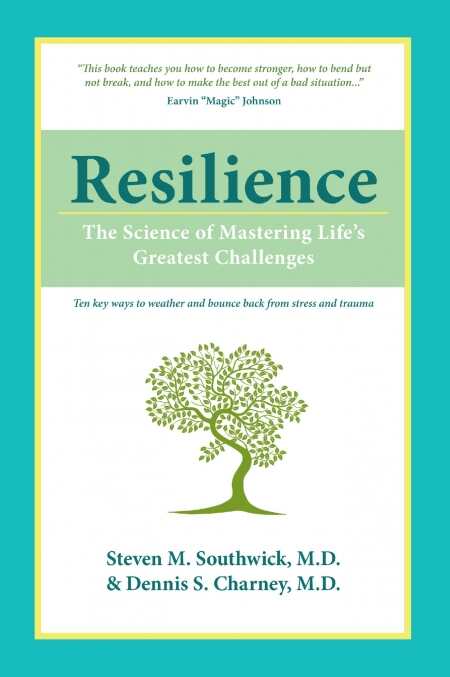Resilience
The Science of Mastering Life's Greatest Challenges
As many as 90 percent of us will experience at least one serious traumatic event during our lives, report Stephen Southwick and Dennis Charney in Resilience: The Science of Mastering Life’s Greatest Challenges. These can range from violent crime or war to child abuse, a serious automobile accident, or death of a loved one.
Resilience opens with an extreme case. Jimmy Dunne was competing in an amateur golf tournament in suburban New York on 9/11, when a plane crashed into the offices of his company, financial services firm Sandler O’Neill, at the World Trade Center. During the ensuing chaos, many of his friends and coworkers died. All of the company’s computer systems and paperwork were destroyed. As the sole surviving leader of the company, Dunne faced many painfully difficult decisions—whether to fold the company or continue, what to do for the loved ones of colleagues who died, and how to rebuild and lead the company after such devastating loss.
Dunne made those tough decisions, and ultimately his company survived and even thrived, while Dunne also provided significant emotional and financial assistance to the families of those who died and the survivors of the tragedy. He is a powerful example of someone who not only endured but actually grew stronger following a trauma. “These survivors may report that their tragedy has helped them to appreciate life more, to become closer to family and friends, to find greater meaning, and sometimes to embark on a new mission in life,” report Southwick, a professor at Yale University, and Charney, a professor at Mount Sinai School of Medicine.
In this sharply written book, Southwick and Charney describe their findings, based on hundreds of interviews with survivors of severe trauma. They’ve found ten “resilience factors”—including optimism, social support, emotional flexibility, and religion and spirituality—that enable these individuals to cope and even grow stronger following adversity. The book examines each of the ten factors, with moving stories of survivors and the lessons they’ve learned.
By necessity, the book covers a lot of ground, and some readers may wish for more depth. For instance, in the chapter on religion and spirituality, the authors devote only one page to the power of prayer, meditation, and mindfulness. But each chapter also provides an extensive list of references for further reading on the topic, as well as life exercises to reinforce a sense of personal resilience.
This brief but powerful book makes an important contribution to our understanding of trauma and the psychological, biological, and social factors that can help us triumph over adversity.
Reviewed by
Kristen Rabe
Disclosure: This article is not an endorsement, but a review. The publisher of this book provided free copies of the book to have their book reviewed by a professional reviewer. No fee was paid by the publisher for this review. Foreword Reviews only recommends books that we love. Foreword Magazine, Inc. is disclosing this in accordance with the Federal Trade Commission’s 16 CFR, Part 255.

